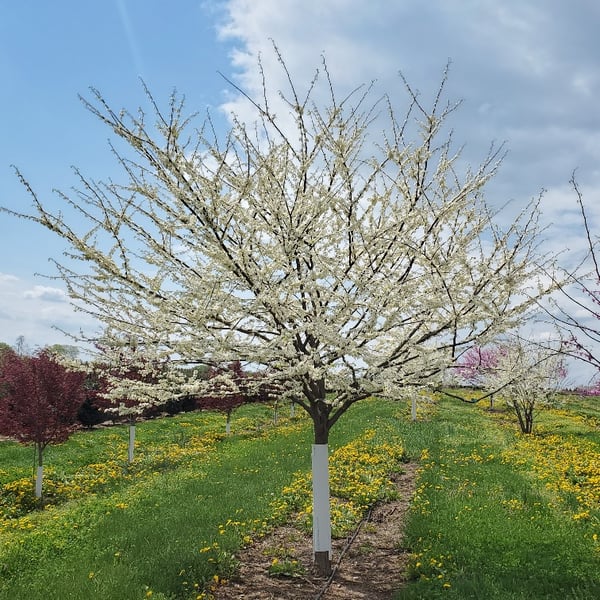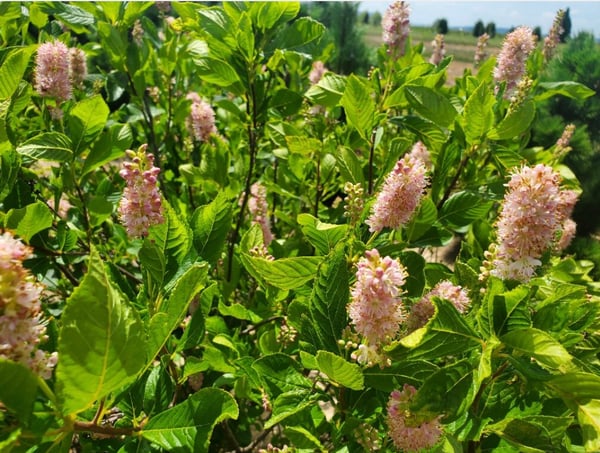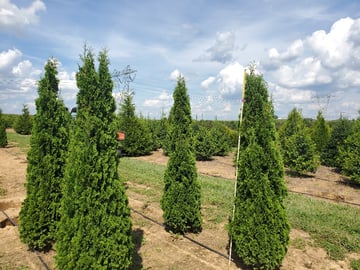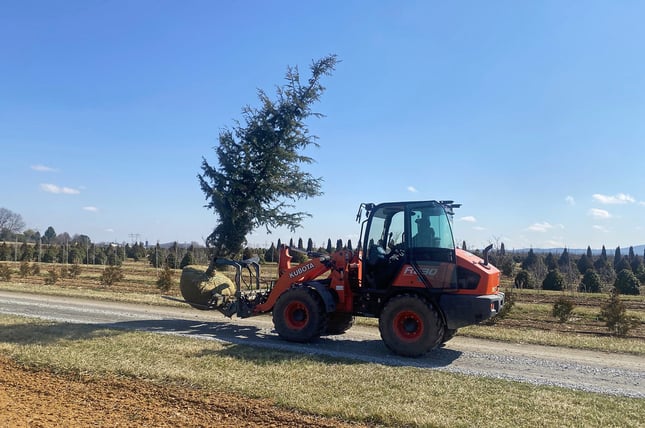Some nurseries specialize in container growing or a mix of container and field grown. Others devote their efforts exclusively to field production of their trees and shrubs. You might choose one over the other depending on the customer or project you are purchasing for.
 Are field grown trees and shrubs always the best choice? I see container stock that looks very good. There are advantages: Container plants are easy to find and easier to transport from nursery to garden center to landscape than their field grown counterparts. It may be that a fair portion of your needs are served pretty well with container grown materials.
Are field grown trees and shrubs always the best choice? I see container stock that looks very good. There are advantages: Container plants are easy to find and easier to transport from nursery to garden center to landscape than their field grown counterparts. It may be that a fair portion of your needs are served pretty well with container grown materials.
When would you want to take field grown plants instead? Most of the time it would be to fill the need for:
- Trees and shrubs that are mature and fully developed
- Specialty specimens that are hard to find
- Plant material that requires extraordinary effort and expertise to grow successfully
It is generally agreed that field grown plants adapt faster to their new home. This where field growing excels. But there is a more important difference between a field grown and container grown plant.
Field Grown vs. Container Grown: What’s the Difference?
The main difference between the two growing methods is that field grown trees and shrubs live in soil conditions similar to what they will eventually live in when they are placed in a home or commercial landscape. Because of this, they are in a better position to adapt and thrive once they are transplanted. And they tend to be fairly self-sufficient once they’ve had time to establish.
It is true that container grown plants are usually smaller in size, and that makes them easier and less expensive to deliver to the end user. They do not require heavy equipment to dig them out the way field grown plants do. But a plant grown in an artificial potting soil mix requires a lot more care after installation because they are going into an entirely new soil environment. They require a prolonged period of regular watering once they’ve been transplanted into a landscape.
The key difference between the two is in the root ball size. With a container grown tree or shrub, you can’t get that well established spread out root system that you get in the root ball of a field grown plant. For the same size plant sourced from the field, you’ll get a bigger root ball and a more naturally developed root system.
Are Some Trees and Shrubs Better Suited for Container or Field Growing?
There are plants that we may choose not to grow in the field because they do very well in containers. For instance, Japanese hollies (Ilex crenata) grow well in containers. A small boxwood will also grow well in a two gallon pot. Container operations can produce these by the thousands. Rather than compete with that, we grow them longer and sell them larger–with the added benefit of a fully developed root ball in nutrient rich soil rather than the potting mix.
 For slow growers that need more time to achieve fullness and good structure, field grown material is the better option. Most landscapers want that good soil and the larger sized plant that you cannot get in a container.
For slow growers that need more time to achieve fullness and good structure, field grown material is the better option. Most landscapers want that good soil and the larger sized plant that you cannot get in a container.
Here’s a great example of the value of keeping a plant in the ground longer before you try to sell it: A while back we started growing Clethra as a sort of experiment. I asked a good customer of mine, “So what do you think? Can I sell those?” His response was, “Hell no! You’ll never get your money out of them.” I waited a few years until they were bigger and put a good price on them. We can't keep up with the demand, they fly out of here so fast. We started with one species and now we’re up to four.
Stick With Field Grown Nursery Stock
 I think the container grower generally wants to get the plant grown and sold as quickly as possible. This may be some kind of record, but I’ve heard of container grown trees turning around in three to six months. There is no question that container growing requires less freight, less labor, and less equipment. It’s easier to handle and can be harvested any time. I understand the market for this.
I think the container grower generally wants to get the plant grown and sold as quickly as possible. This may be some kind of record, but I’ve heard of container grown trees turning around in three to six months. There is no question that container growing requires less freight, less labor, and less equipment. It’s easier to handle and can be harvested any time. I understand the market for this.
But for high value, mature plants that won’t be shocked when moved into natural soil, field grown is the way to go. If your customer base or the types of projects you do require full-sized and fully finished trees and shrubs, you are going to want to stick with field grown nursery stock.
We all stand to benefit from high value wholesale plants sold at prices that honestly account for what it takes to produce that value. But how do we know we are purchasing the best plant material for the best price?
Our ebook “Why Accurate Plant Pricing is Good for Everyone” will give you a fresh perspective on the delicate balance between price and value.





